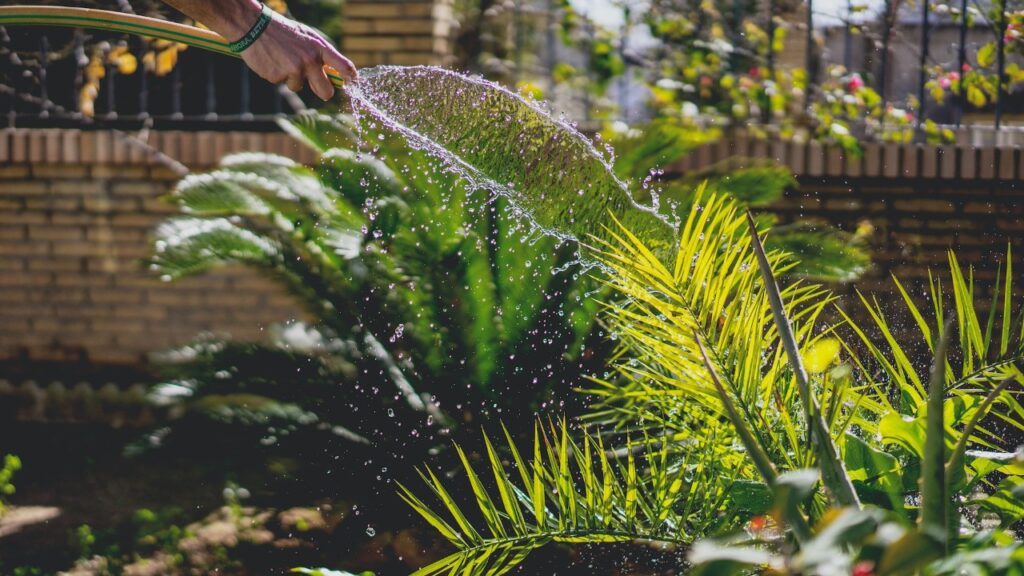Rubber garden hoses are a popular choice for many gardeners, homeowners, and professionals due to their durability, flexibility, and various benefits. When considering whether rubber garden hoses are better than other types, it’s important to understand their advantages and how they compare to other common hose materials like vinyl and polyurethane. In this comprehensive guide, we’ll explore the benefits of rubber garden hoses and provide insights into why they are often preferred.
Benefits of Rubber Garden Hoses:
Durability:
- Rubber hoses are known for their exceptional durability. They can withstand a wide range of weather conditions, including extreme heat and cold. Rubber is resistant to cracking, kinking, and abrasion, making it suitable for long-term outdoor use.
Flexibility:
- Rubber hoses are highly flexible, allowing for easy handling and maneuvering around obstacles in your garden. Their flexibility reduces the risk of kinks and tangles, which can be a common issue with stiffer hoses.
UV Resistance:
- Rubber is naturally UV-resistant, which means it can endure prolonged exposure to sunlight without degrading or becoming brittle. This UV resistance is a significant advantage, particularly in sunny climates.
Temperature Tolerance:
- Rubber garden hoses are capable of withstanding both hot and cold temperatures. They remain pliable and functional in freezing winter conditions and do not become overly soft or prone to melting in the summer heat.
Crush Resistance:
- Rubber hoses have a high resistance to crushing or flattening. This feature ensures that the water flow remains consistent even if the hose is accidentally stepped on or subjected to heavy objects.
Leak Resistance:
- Rubber hoses are less prone to leaking, thanks to their solid construction. They are typically designed with sturdy brass or aluminum connectors that provide a reliable and leak-free connection to spigots and watering tools.
Kink Resistance:
- While no hose is completely immune to kinking, rubber hoses are less likely to kink compared to some other materials like vinyl. Their flexibility and strength contribute to reduced kinking issues.
Longevity:
- Rubber hoses have a longer lifespan compared to many vinyl hoses. They are designed to endure years of use, and their durability often results in fewer replacements, which can save you money over time.
Safe for Drinking Water:
- Some rubber garden hoses are certified for safe use with drinking water. If you have a vegetable garden and need to water edible plants, a drinking-water-safe rubber hose is a reliable choice.
Resistance to Algae and Mold:
- Rubber hoses are less likely to develop algae or mold on their inner surfaces due to their resistance to UV damage. This helps maintain water quality and flow.
Low Chemical Transfer:
- Rubber hoses typically release fewer harmful chemicals into the water compared to some vinyl hoses. This is important when using hoses for drinking water or in applications where chemical transfer should be minimized.
Comparing Rubber Garden Hoses to Other Materials:
Rubber vs. Vinyl:
- Rubber hoses are generally superior to vinyl hoses in terms of durability and flexibility. Vinyl hoses are more prone to kinking and cracking, especially in extreme temperatures. While vinyl hoses are often less expensive, they may require more frequent replacements, making rubber hoses a cost-effective choice over time.
Rubber vs. Polyurethane:
- Polyurethane hoses offer some advantages in terms of lightweight design and flexibility. However, rubber hoses are more durable and better suited for heavy-duty use, as polyurethane hoses may be susceptible to abrasion and wear over time. Rubber hoses are the preferred choice for professional landscapers and commercial applications.
Rubber vs. PVC:
- PVC (polyvinyl chloride) hoses are not as flexible and durable as rubber hoses. PVC hoses are often used for light-duty or occasional watering tasks, while rubber hoses are better suited for heavy use and long-term durability.
When to Choose Rubber Garden Hoses:
Heavy-Duty Use: If you have a large garden, need a hose for frequent watering, or require a hose for professional landscaping, a rubber garden hose is an excellent choice due to its durability and longevity.
Extreme Weather Conditions: Rubber hoses are ideal for regions with extreme temperature variations. They can handle both freezing cold and scorching heat without compromising performance.
Safe Watering: If you plan to use your hose for watering edible plants or providing drinking water to pets or livestock, a rubber hose certified for drinking water is a safe and reliable option.
Long-Term Investment: If you prefer to invest in a hose that will last for years without the need for frequent replacements, a high-quality rubber garden hose is a wise choice.
Conclusion:
Rubber garden hoses offer a wide range of benefits, making them a preferred choice for many gardeners, homeowners, and professionals. Their durability, flexibility, resistance to UV and extreme temperatures, and safe water delivery make them a versatile and reliable option. While they may come at a slightly higher initial cost than some other hose materials, their long lifespan and low maintenance requirements often make them a cost-effective choice over time. When selecting a garden hose, consider your specific needs, the conditions in your region, and the intended use to determine if a rubber garden hose is the right fit for you.


